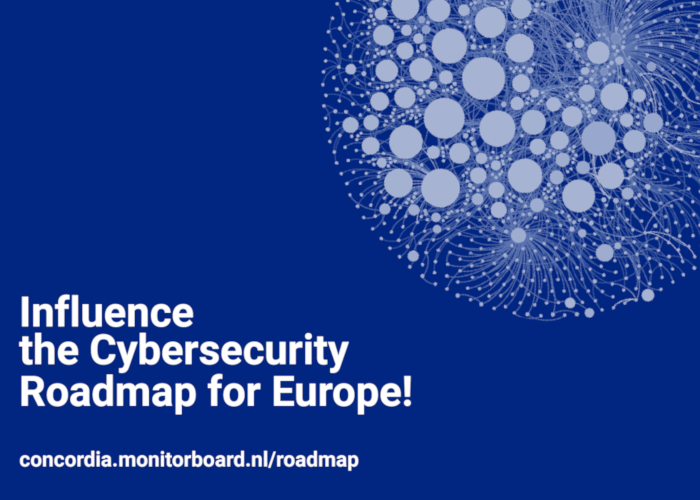Press Release: Experts launch roadmap for European cybersecurity and ask for comments
A set of strategic recommendations under the title ‘Roadmap for Cybersecurity in Europe’ has been launched by a group of experts from more than 50 European institutions. They have also created an interactive website where professionals from across the EU can comment on the document until the end of March. The roadmap was produced within the Concordia project, which brings together universities, innovation centres and private companies from 27 European countries.
Cybersecurity is a matter of increasing urgency for public, academic and private institutions. More complex attacks can affect people’s daily lives, the functioning of companies and even operations of state.
“The introduction of innovations such as the cloud and edge computing, new networking technologies and artificial intelligence, the shift to remote work enforced by pandemics, and a lack of qualified professionals and necessary skills – all these factors have a fundamental effect on cybersecurity today,” explain the experts working on the project. “Shortcomings in these areas have been immediately exploited by various threat actors with malicious intent, who have quickly taken advantage of this situation by exploiting social engineering and the software supply chain to mount attacks.”
Interest has so far focused mainly on technological aspects of cybersecurity. This focus is no longer sufficient, experts say. The new strategy document therefore describes nine fundamental dimensions that affect cybersecurity, showing where the current focus should be laid. These dimensions include for an example research and innovation, education, economics and investment, law, and certification and standardisation. It is also necessary to consider building a community of experts, institutions and other centres that will help ensure a secure and resilient European cybersecurity system.
Professionals can now comment on each of the areas in the document on an interactive website. Comments and additions will be displayed to the authors in a special form and taken into account in the new strategy once the commenting process is closed.
The Concordia project brings together natural, technical and social sciences. It involves 54 institutions from across the EU, including universities, innovation centres and private companies from Germany, Switzerland, Norway, the Netherlands, the UK, the Czech Republic and 21 other countries. It is coordinated by the Bundeswehr University Munich. The project is funded by the European Union to an amount of almost 16 million euros. A set of recommendations, the so-called roadmap, is one of the key outputs of the project, which will end in March.

